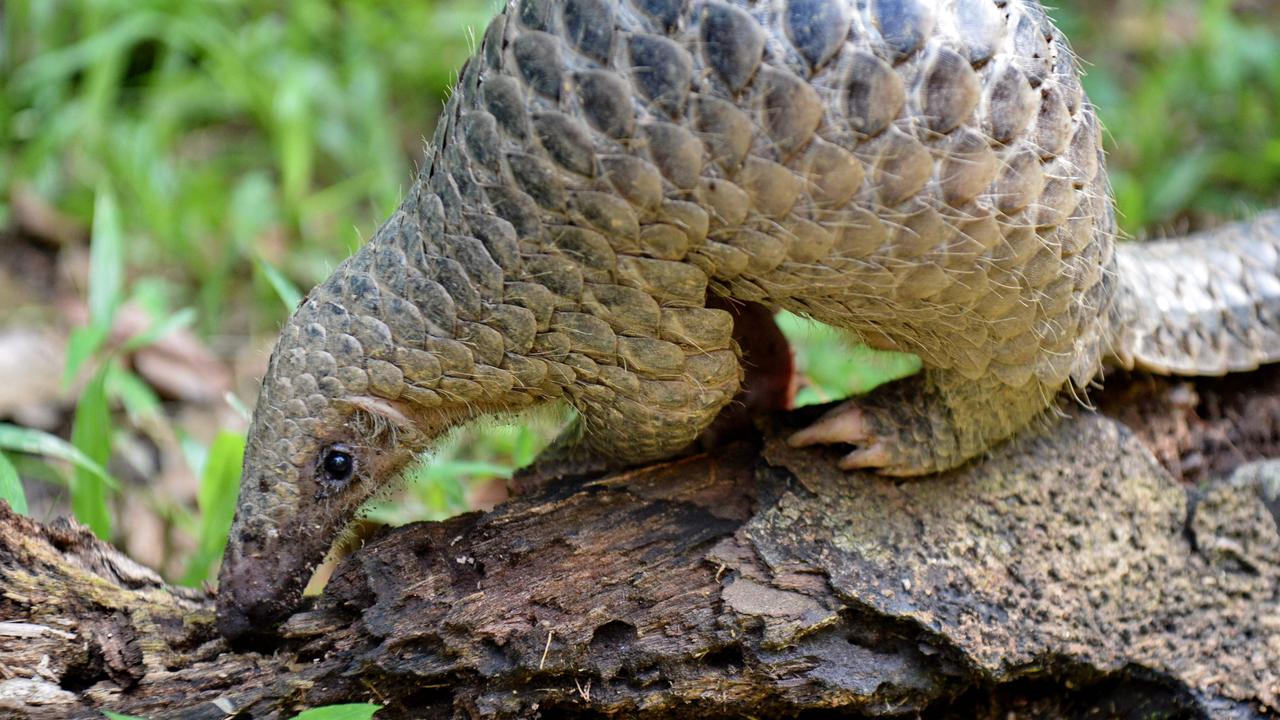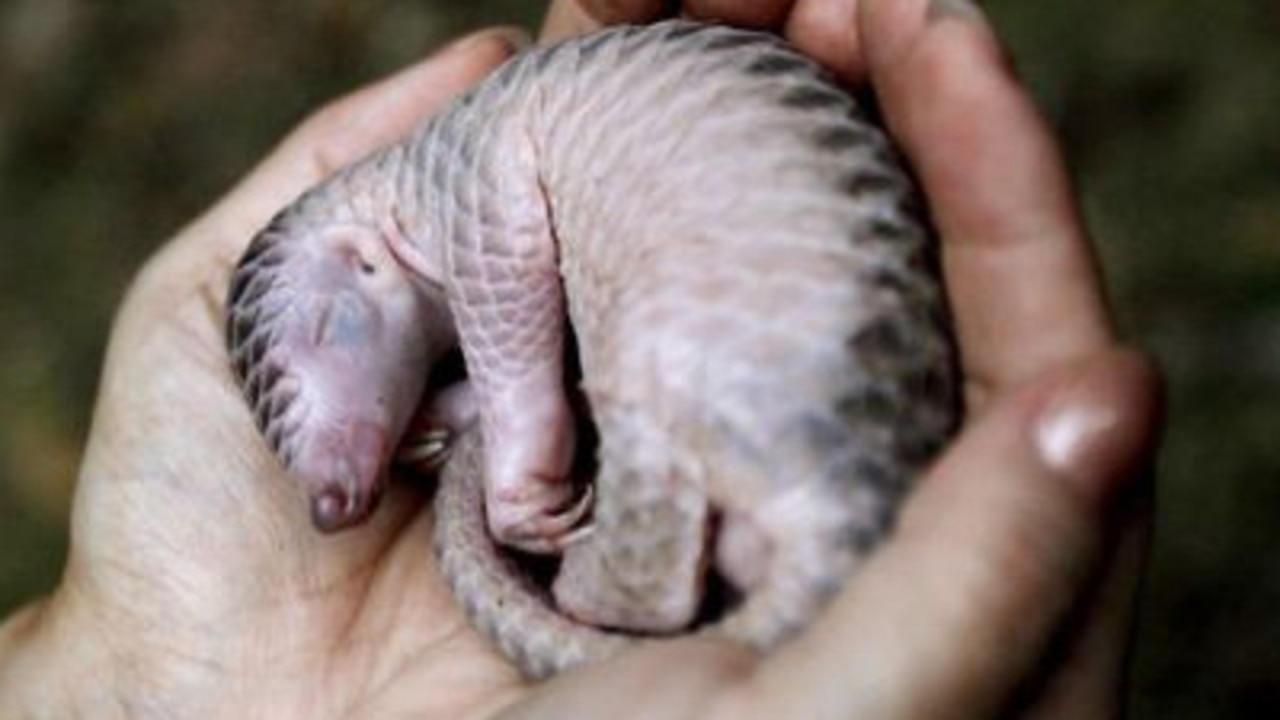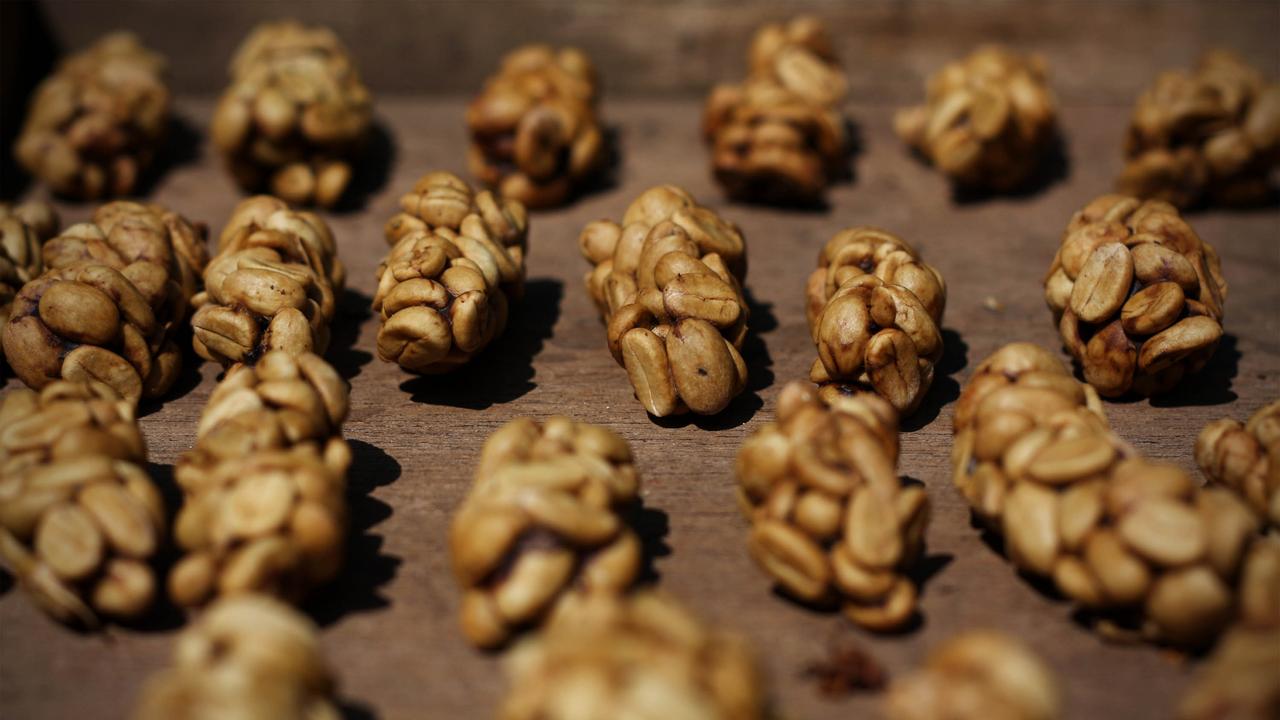Prized animal blamed for coronavirus transmission, similar to previous SARS outbreak
A sought after wild animal has been blamed for transmitting the coronavirus from bats to people, echoing a similar viral outbreak.

It’s highly likely you’ve never heard of a pangolin, and your first impression isn’t going to be a good one.
The scaly anteater has been blamed for spreading the coronavirus from bats to humans by researchers at South China Agricultural University.
A statement posted on the university’s website said the “discovery will be of great significance for the prevention and control of the origin”, according to Reuters.
But not all scientists agree.
“The evidence for the potential involvement of pangolins in the outbreak has not been published, other than by a university press release. This is not scientific evidence,” Cambridge University’s head of veterinary medicine James Wood said.
He added the results were insufficient and could have been contaminated.

Pangolins are the most trafficked animal in the world according to the International Union for Conservation of Nature (IUCN), which said more than a million of the mammals have been taken out of their native forests in Africa and Asia in the past ten years alone.
Pangolins are the only mammals to have scales, which are prized for their perceived medicinal benefits.
They are also sought after for their meat.
Conservationists have pointed to the coronavirus outbreak as yet another reason why the wildlife trade needs to end.
“If we want to do everything in our power to prevent deadly disease outbreaks such as coronavirus, then a permanent ban on wildlife trade, in China, and around the world, is the only solution,” said Neil D’Cruze, global head of wildlife research at World Animal Protection.

The SARS outbreak, which has been the main comparison point for coronavirus, is believed to have also been transmitted from bats to humans by a sought after intermediate host.
In the case of SARS it was civets who copped the blame.
The catlike mammal is believed to have carried the virus when sold for meat at markets in the Yunnan province in China’s south west, bordering Myanmar, Laos and Vietnam.
Civets are most notable for their use in the manufacture of Kopi Luwak, the world’s most expensive type of coffee.


It’s made from the beans inside partially digested coffee cherries, which are fermented as they pass through the civets and then picked out of the mammal’s faeces.
This used to be done by foraging through the scats of civets in the wild but has now been industrialised, leading to civets being locked in cages and force fed cherries like a battery hen producing eggs.
Kopi Luwak sells in Australia for $1000 a kilogram.

8094 cases of SARS were reported during an outbreak that lasted between November 2002 and July 2003.
Coronavirus has now had four times as many reported cases in just 32 days.
774 people died in the nine month SARS outbreak.
Coronavirus has so far killed 724 people, 722 of them in China.
Hong Kong and the Philippines have recorded one each.
No Australians have died from coronavirus at this stage and none died from SARS.
- With wires



